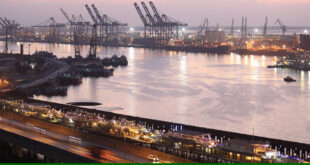A unique and terrifying moment in modern history is unfolding before us, every day but it teaches us a lesson of rapid transformation in many areas of public life as no country, or state, or locality, or even individual hospital was properly prepared for Covid-19. At this time of crisis where social distancing and culture of stay home to be safe are promoted supply of basic needs and goods is really a big challenge for governments all around the world and this crisis metastasizes into the kind of ugliness and horror we have witnessed in other countries, it will become increasingly important to remind ourselves that slowing the speed at which the peak number of cases and fatalities is arrived at was exactly the purpose of flattening the curve. Pakistan’s measures and preparation leave a lot to be desired, but so did China’s and the United States’ and every other countries on the planet. We must be present and alive to the history we are witnessing. Part of the challenge we face is to be able to process the disruption, fear and anxiety that Covid-19 has caused in a manner that solves problems, rather than exacerbates them. With e-commerce driving the logistics sector in the time of Covid-19, there has been a spike in demand for temporary warehouses, signaling a structural shift in the approach of companies and investors where occupiers are looking for alternative locations as it helps in continuity of business and mitigates delays in delivery. The urban logistics sector is thus considering conventional retail spaces, banquet and marriage halls for alternative use as city warehouses where investment and real estate management firm, says the challenge posed by Covid-19 has made large companies consider outsourcing supply chain management for the sake of efficiency. With realtors shifting their focus to development of logistics real estate, manufacturing firms are trying to get space on lease, seeking ‘ready to occupy and built to suit industrial spaces’ with higher specifications and pre-approved usage . In short all we require is a transformed logistics and supply chain management culture. The capacity and range of local manufacturing of food, medicine and FMCGs, like soap. Digital payments and, in particular, contactless transactions.

Public-sector hospital capacity, and mental health at large. Education and online teaching and learning etc and there is no doubt in the fact that challenges (and possibilities) are endless. The Covid-19 crisis represents a unique and historic opportunity to revisit the notion of governed and ungoverned, to adopt and adapt to new technology that affords greater utility for citizens, businesses, consumers and taxpayers, and to establish new standards of what we deem to be good enough. But to do this, we need transition from instruction and directives-based governance, to problem-solving governance. In most of the areas during lockdowns people experience disruptions in supply but when it is closely monitored it is identified that ‘disruptions’ are not in supply but in demand and the other reason behind the issue is the absence of workers and the missing holes in the supply chain due to lockdowns. Fearing an extended lockdown and shortages, individuals and families have understandably started trying to stockpile key food items. As the days turn into weeks, and weeks grow into months, the sense of panic and fear will only increase. This global crisis is an opportunity to revisit the logistics and supply chain of the full spectrum of how the things that we really want get from where they are to where they should be. The various provincial and federal governments are working with 19th century tools to solve 21st century problems and as the Covid-19 crisis metastasizes, we will witness an unprecedented exhaustion of our usually resilient people and systems. As we head into that tornado, we must constantly remind ourselves that this crisis is a chance for us to change the fundamentals of how things work in this place.
During the pandemic we witness marked declines in manufacturing, exports, and overall global commerce, the transportation and logistics networks. According to a report by the Asian Development Bank (ADB), the coronavirus pandemic could cost Pakistan’s economy anything between USD 16.387 million and 4.95 billion, which is approximately equivalent to 0.01 % to 1.57 % of its current Gross Domestic Product (GDP). Additionally, there is a threat that the crisis could trigger a loss of 946,000 jobs. Pakistan already has 50 to 60 million people living below the poverty line and Covid-19 is estimated to further push this number to 125 million.
If we talk about maritime trade and logistics unsurprisingly, the maritime community has also been affected in a big way. During pandemic, ports have started quarantining vessels for up to 14 days before they enter the destination port, depending on whether their last port visit was in a highly infected country or not. Quarantining vessels will lead to a tremendous impact on global trade and commerce due to vessels being held for up to 14 days before exchanging goods around 80 percent of global trade is transported by commercial shipping and maritime trade flows account for nearly 25% of global traffic volume. The maritime industry is playing an essential role in the short-term emergency response to the COVID-19, by facilitating transport of vital commodities and products. Despite the current difficult times, a vast majority of ports have succeeded to stay open to cargo operations. However, most of them still remain closed to passenger traffic but in this time of global crisis where every sector is transforming, there is a strong need to incorporate entrepreneurship into our model of transformation and innovation.
Pakistan struggles with innovation and entrepreneurship but has seen significant initiatives in the past few months. Hospitals have established online clinics and groceries are home-delivered, while keeping up with sterilization directives issued by local governments. Engineers are developing prototypes for ventilators, innovation is being encouraged and appreciated. The logistics industry is catering to SMEs, and bridging the existing gap in Pakistan’s economy effectively through efficient business solutions. Will they be able to make space for themselves under the current crisis? Will Pakistan’s logistics industry play its part in becoming an essential player linking end customer with businesses at source? Despite the national lockdown being eased, the mobility of individuals remains a challenge. As in China’s case, the logistics industry stepped up to provide several facilities to its customers within the comfort of their homes. Will Pakistan’s logistics industry become the country’s ‘heroes without capes’?
 PAGE Blog Business Weekly Magazine
PAGE Blog Business Weekly Magazine

